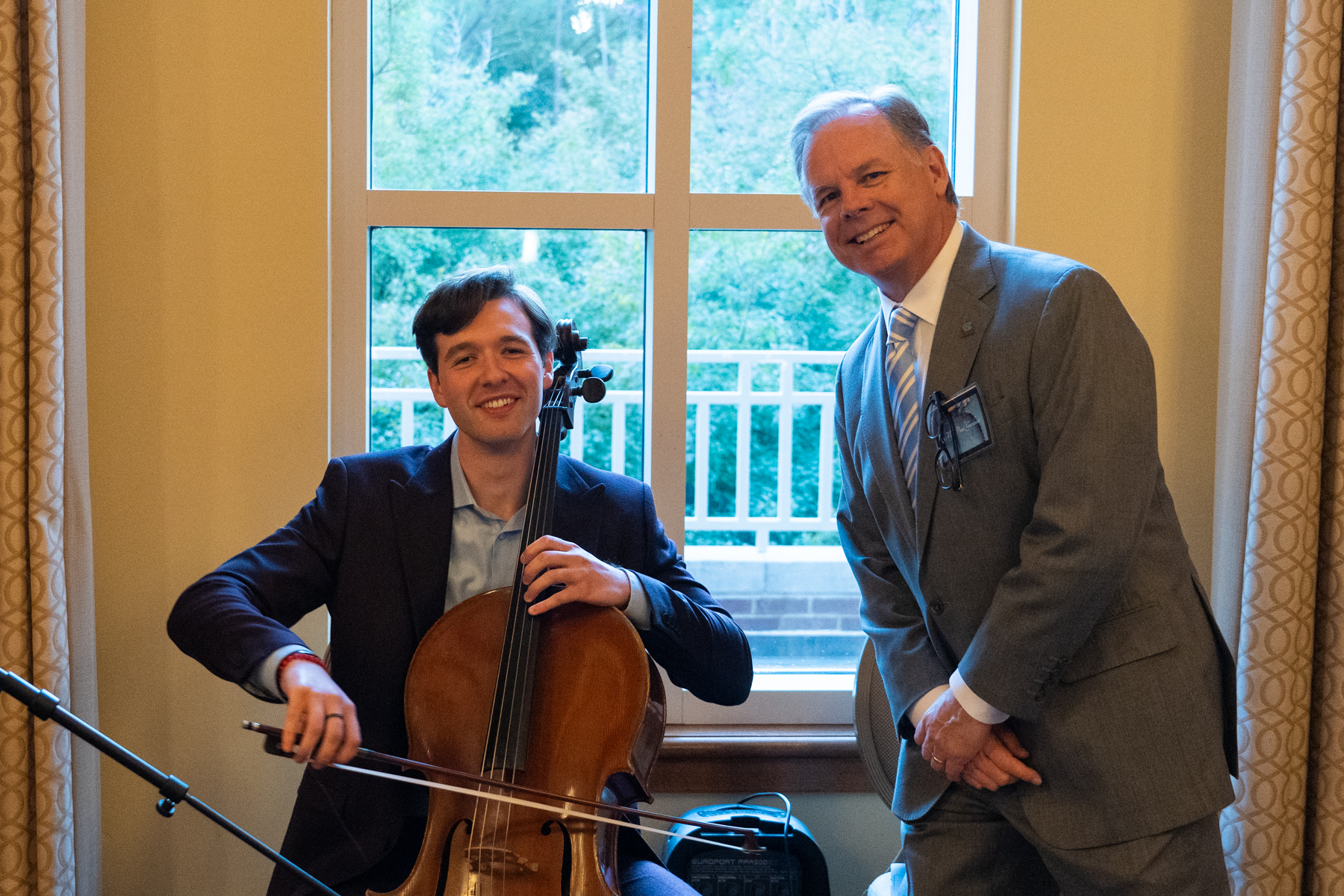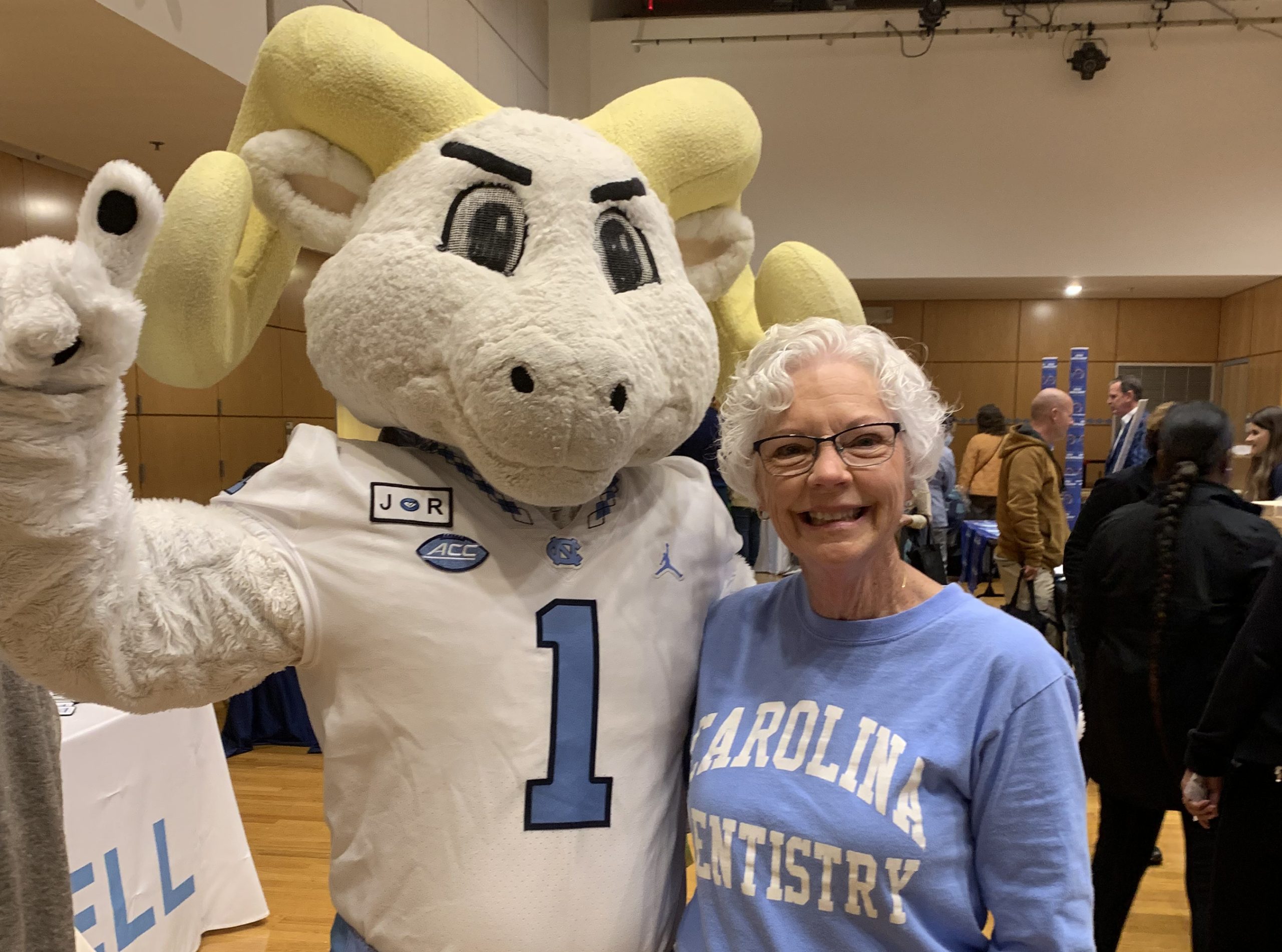William R. Proffit, Former Chair of Orthodontics, Passes Away

William R. Proffit, DDS, MS, PhD, past W.R. Kenan Distinguished Professor, former chair of the Department of Orthodontics and professor emeritus of the University of North Carolina at Chapel Hill School of Dentistry, passed away September 30, 2018. He was 82 years old.
“It’s a sad day for orthodontics, because we lost a giant of modern orthodontics,” said Ching-Chang Ko, DDS, MS, PhD, chair of the Department of Orthodontics. “Dr. Proffit was well-known and extremely wise in the field of orthodontics. Almost every orthodontic resident has to read his book, and he mentored many successful orthodontists in the U.S. and worldwide. His passing has been a shock to us all.”
Proffit is widely considered an extraordinary influence on the field of orthodontics in the U.S. and across the globe. He was the author of “Contemporary Orthodontics,” a book now printed in 12 languages and known worldwide as the definitive text for both pre-doctoral and post-doctoral orthodontic students; he had completed the sixth edition revisions earlier this year. He was co-author of “Surgical Correction of Dentofacial Deformity” and “Surgical-Orthodontic Treatment,” and published more than 200 research papers, 20 book chapters and given many invited presentations.
In 1992, the University of North Carolina at Chapel Hill Board of Trustees named Proffit a W.R. Kenan, Jr. Distinguished Professor in recognition of his excellence in teaching and research. The professorship is considered one of the University’s most prestigious honors.
He received many awards and accolades throughout his lifetime including: the American Dental Association’s Norton Ross Award in 1994; the American Association of Orthodontics’ (AAO) Louise Ada Jarabak Memorial Teachers and Research Award in 2000; the Southern Association of Orthodontists’ Distinguished Service Award in 2001; the North Carolina Dental Society’s Meritorious Achievement Award in 2002; and the American Board of Orthodontics’ Ketcham Award in 2005.
In 2017, he received the inaugural AAO Lifetime Achievement Award in Orthodontic Research. The award recognizes individuals who have made significant contributions to the science related to orthodontics over their lifetime. When presenting the award to Proffit, Rolf Behrents, editor-in-chief of the American Journal of Orthodontics, recognized Proffit’s extraordinary influence on orthodontics in the U.S. and across the world. “[Proffit’s] lifelong devotion to the specialty has clearly shaped our present and helped design our future,” said Behrents.
“Dr. Proffit’s incredible expertise and unprecedented influence on orthodontics not only in the United States but around the world earned him global recognition as one of the leaders in orthodontics,” said Dean Scott S. De Rossi, DMD, MBA. “He was an innovative and compassionate leader who took orthodontics at UNC and around the world to a new level. To say that the global dental community has lost a significant influence would be an understatement, but there is no way to understate the loss our school is feeling in the wake of this news.”
He served as an investigator at the National Institute of Dental Research in Bethesda, Maryland, for two years before joining the faculty at the University of Kentucky as the first chair of the orthodontic department in 1965. In 1973, he was professor of orthodontics and chair of pediatric dentistry at the University of Florida. He joined the faculty at the UNC-CH School of Dentistry in 1975, where he served as a professor and chair of the Department of Orthodontics for 26 years.
A native of Harnett County, North Carolina, he received both his undergraduate degree and his Doctor of Dental Surgery degree from the University of North Carolina at Chapel Hill. He earned a doctorate of philosophy in physiology from the Medical College of Virginia, and a master’s in orthodontics from the University of Washington.
Ko recalled how Proffit was able to take complicated topics and make them simple, so that everyone could read and understand them.
“He was a good storyteller. Every time I saw him, he’d say ‘Hey Ching, let me tell you a story.’ When I read his textbook, I feel like I’m reading a story – I think that may be why we enjoy reading his textbook so much.”


